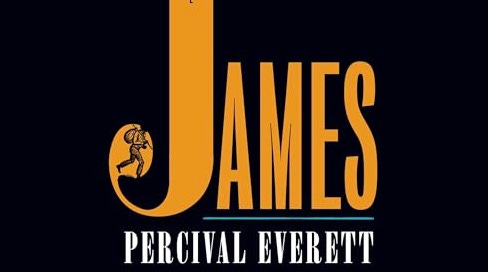BookLife Review by Carol O'Day: James: A Novel (Percival Everett, author)
reimagining of The Adventures of Huckleberry Finn, Big Jim and Huck Finn, Mississippi River, river raft journey, enslaved people, runaway slave, carpetbaggers, freedom
James: A Novel by Percival Everett, is a clever re-imagining of Mark Twain’s The Adventures of Huckleberry Finn. James is told from the point of view of Twain’s Big Jim, here known as James. As a novel, James travels much, but not all, of the terrain and storyline the reader had digested in Twain’s classic. For me, The Adventures of Huckleberry Finn was a high school undertaking, and therefore, was lodged quite far back in my memory. When I started reading James, I experienced echoes of familiarity, but I had only a skeletal recall of the original Twain novel. Characters like Big Jim, Miss Watson, Aunt Polly, the scoundrels known as the King and the Duke, and, of course, Tom Sawyer, rose from my memory like some friendly ghosts, but the finer points of Huck and Big Jim’s journey down the Mississippi River were lost to time and my ability to resurrect them. As a result, I opted to reread The Adventures of Huckleberry Finn after reading James (and largely enjoyed it) so that I could more completely appreciate and review Everett’s book, and ascertain for my own peace of mind where it paralleled the original and where the two narratives parted ways.
James’ primary original conceit is that the runaway slave we previously met as Big Jim in Twain’s novel here is an articulate, self-taught man of great presence and integrity, who knows how to both read and write. James in Everett’s novel speaks to his peers and fellow enslaved people without the dialect attributed to slaves in much of literature. Everett posits that slaves only used the that dialect as an intentional tool to maintain the pretense of humility relative to slave owners and so as to avoid presenting a threat to them–either of knowledge and ability that would make them a runaway threat or a threat to educate or liberate other slaves.
Many of the central characters, as well as key events in the plot line, from The Adventure of Huckleberry Finn appear in or are referenced in James, but they emerge from an entirely fresh point of view. The events and people we meet in James we now see through the critical lens of an educated, formerly-enslaved man. The conditions of enslavement are similar, the characters exercising dominion over James and his family are the same. The existence of Huck’s abusive, often-absent and itinerant father, as well as the scenario Huck stages of his own death appear in both novels. In both novels, James and Huck encounter each other on the run on the small island across from their town, and they unite to travel to freedom together. In both they encounter the corrupt scoundrels, the King and the Duke, interface with steamboats and other travelers on the river, and the need to keep James or James out of sight and the clutches of slave hunters.
James does not, however, merely repeat or include all of the detours contained in Twain’s novel. Everett creates countless new scenes. Secondary story lines, and much dialogue and interaction between Jim and Huck not part of Twain’s novel. Notably, in James, Everett probes more deeply the impact and pain of slavery on James, and exposes Huck to James’ pain and struggle. He endows his Huckleberry with a greater overt and expressed dawning sense of compassion and arguably a stronger moral compass. He adheres to the notion of growing a deep loyalty between Huck and James, born of their shared struggle, their protection of one another along their journey, their shared past experiences of hardship and their mutual innate goodness. Still, Everett allows that his Huck is a product of his times and of a system where it was legal for one man to own another. Yet, James’ Huck perhaps chafes more noticeably at the injustices that are imposed on enslaved people and grows even more deeply attached to James on their journey. The Adventures of Huckleberry Finn and James both are novels both of and ahead of their time.
James: A Novel is a book well-suited for book group discussions, with abundant concepts to discuss and debate–the fealty to the original Twain novel, the incidence and prevalence of enslaved people who learned to read, the fantastical and perhaps romanticized notion of this traveling duo, and the surprising twist at the end of the book. What is most inviting about the book is its fresh take on a classic story and its beloved characters delivered from the hand of a great writer. Everett nimbly weaves a new tale out of a story read across the ages and opens our eyes by casting two classic characters in a new light, on a journey that re-opens and renews our consideration of one of the fundamental issues beating in the heart of our nation.
Support BookLife: Reviews for Readers by purchasing James: A Novel and The Adventures of Huckleberry Finn (if you’d like a refresher yourself) using the Bookshop.org link below.





